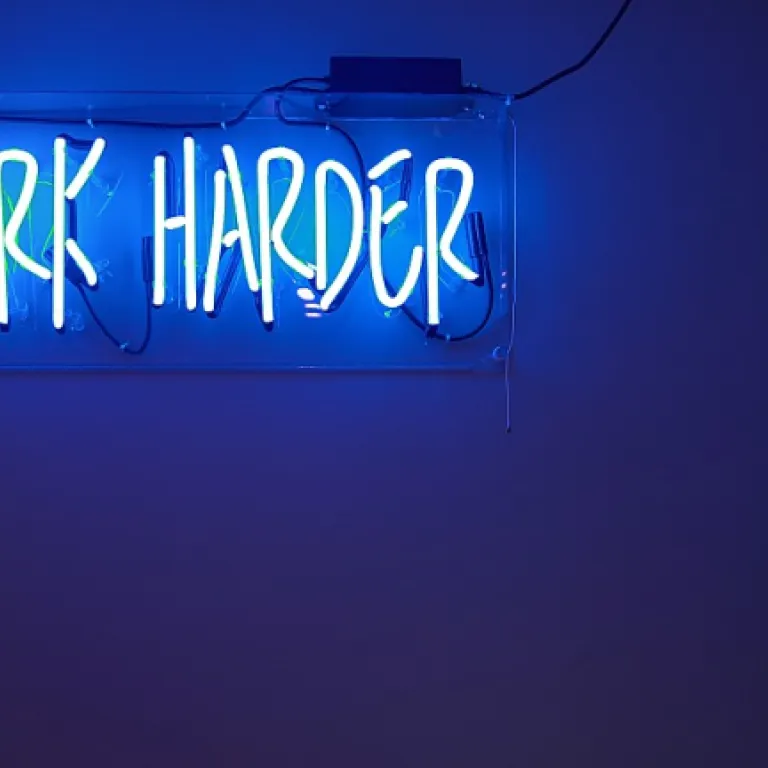
Understanding the Role of HR in Interviews
Grasping the Essential Role of HR
In today's dynamic professional landscape, Human Resources (HR) plays a pivotal role in shaping and enhancing workplace culture. From management to employee engagement, HR professionals are the backbone of a thriving organization. Their responsibilities extend beyond recruiting and hiring; they support employees' growth, ensure compliance with labor laws, and foster an inclusive environment where everyone can celebrate their unique contributions.
HR interviews are a critical part of the hiring process, reflecting the organization's values and culture to prospective employees. On days honoring the hard work of HR professionals, it's vital to recognize their dedication to understanding and implementing effective interview strategies. This helps in selecting candidates who will contribute positively to the team, aligning with the company’s goals and objectives.
The day-to-day responsibilities of HR include being the bridge between management and employees, ensuring both parties' needs are met. By appreciating the complexities and challenges involved in HR job interviews, organizations can better support their HR teams and leverage technology for efficiency. For more insights on enhancing the effectiveness of HR processes, consider exploring the HR document management system.
Recognizing HR's role and celebrating their efforts on specific appreciation days not only boosts morale but also reinforces their importance within the workplace. Highlighting the fundamental role HR plays is a way to ensure that their contributions are valued every day, not just during professional days dedicated to honoring them.
Common Challenges in HR Job Interviews
Overcoming Common Obstacles in HR Interviews
Navigating HR interviews can be a challenging task as it often involves balancing various complex elements simultaneously. As a resource professional, one must be equipped to face a multitude of hurdles that may arise during the interview process. Here are some of the most common challenges and ways to address them:- Ensuring Cultural Fit: Ensuring that the potential employee aligns well with the workplace culture is critical. Evaluating cultural fit requires not just assessing skills but understanding the candidate's appreciation for the existing company values and how they would integrate into a team. This involves recognizing the diverse strengths people bring, elevating employee engagement, and fostering a happy, productive work environment.
- Managing Nerves and Anxiety: Both interviewers and candidates can experience nervousness which can affect the flow of communication. HR professionals must create a supportive atmosphere that helps candidates feel comfortable, allowing their true abilities to shine. Techniques such as expressing genuine appreciation for their professionalism and conducting the interview day with care can mitigate anxieties, celebrating the candidate's efforts and dedication.
- Handling Complex Scenarios: Not all interviews go as planned, and difficult scenarios can occur. It's important for HR professionals to handle these with a balanced approach, respecting the details while protecting the company's interests. Enhancing employee experience is critical for resolving such challenges swiftly with effective strategies that cater to the well-being of both the candidate and the company.
- Maintaining Objectivity: With biases being a real concern in interview settings, HR professionals need to ensure that the evaluation process remains as objective as possible. This means relying on standardized criteria and structured interviews to ensure that every candidate is assessed fairly and equally, consistently emphasizing the importance of diversity and inclusion.
Effective Communication Strategies
Enhancing Interview Outcomes through Clear Communication
Effective communication is a cornerstone of successful HR job interviews. It involves not just the verbal exchange of information, but also non-verbal cues such as facial expressions, body language, and active listening. For HR professionals, mastering these skills is crucial, not merely for conducting interviews but also for contributing to a positive workplace culture.- Adopt a Listening Stance: HR professionals must demonstrate genuine interest in the candidate by actively listening. This goes beyond hearing words; it involves understanding the emotions and intentions behind them. Listening attentively can help HR teams gather essential insights about a candidate's fit within the organization, contributing to better employee engagement.
- Articulate Questions Clearly: It's essential to frame questions that are both clear and open-ended, inviting candidates to share more about their experiences and thought processes. This approach not only provides depth to the discussion but also helps evaluate the candidate's ability to communicate clearly and effectively. It's an opportunity to celebrate the different perspectives they bring to the table.
- Be Mindful of Non-Verbal Communication: Professionals in the HR field often rely on their understanding of non-verbal cues during interviews. A candidate's body language can reveal much about their confidence, engagement, and sincerity. As HR professionals support candidates through the interview process, it's essential to be aware of their own body language and ensure it reflects openness and appreciation.
- Create a Comfortable Atmosphere: A supportive interview environment allows candidates to perform at their best. HR teams can set the tone by explaining the interview process, thereby reducing anxiety and encouraging open dialogue.
- Feedback as a Two-Way Street: Providing constructive feedback to candidates is a way for HR professionals to demonstrate care for the individuals who took the time to interview. It can also serve as an opportunity for HR professionals to refine their approach and align better with the evolving expectations of today's job market.
Navigating Difficult Interview Scenarios
Handling Tricky Interview Situations with Confidence
In the dynamic world of human resources, professionals often encounter challenging interview scenarios that test their skills and resilience. These situations require a blend of empathy, strategic thinking, and effective communication to ensure a positive outcome for both the interviewer and the candidate. Here are some strategies to navigate these tricky scenarios:
- Stay Calm and Composed: Maintaining a calm demeanor is crucial when faced with unexpected questions or situations. This not only reflects professionalism but also helps in managing the interview flow effectively.
- Empathy and Understanding: Demonstrating empathy towards candidates can ease tension and foster a supportive environment. Understanding the candidate's perspective can lead to more insightful discussions and better employee engagement.
- Clear Communication: Articulate your questions and expectations clearly. This reduces misunderstandings and ensures that the interview process is transparent and fair.
- Flexibility and Adaptability: Be prepared to adapt your interview strategy if the situation demands it. This flexibility can be a testament to your resource management skills and your ability to handle diverse workplace cultures.
- Appreciation for Diversity: Celebrating the diverse backgrounds and experiences of candidates can enrich the interview process. This appreciation not only enhances the workplace culture but also aligns with international human resource practices.
By embracing these strategies, HR professionals can effectively manage difficult interview scenarios, ensuring that both the candidate and the organization benefit from the interaction. This approach not only supports the day-to-day work of HR teams but also contributes to the overall success of the organization by fostering a culture of care and appreciation.
Leveraging Technology in HR Interviews
Embracing Digital Tools for Enhanced HR Interviews
In today's digital age, leveraging technology in HR interviews is more important than ever. Technology not only streamlines the interview process but also provides an array of resources and tools that can enhance the overall experience for both the interviewer and the candidates. Utilizing technology effectively can contribute to a positive workplace culture. Digital tools and platforms have made remote interviews more accessible, allowing HR professionals to connect with talent globally. This flexibility can lead to more diverse and inclusive hiring, fostering a culture of appreciation and understanding. Here's how technology is transforming HR interviews:- Virtual Interview Platforms: These platforms offer a convenient and cost-effective solution to reach a wider pool of candidates. They also ensure that the recruitment process is efficient, making it easier to support international hiring initiatives.
- Automated Scheduling Systems: Tools that automate interview scheduling can save a significant amount of time and reduce administrative burdens. This means HR professionals have more day-to-day flexibility to focus on engagement and candidate care rather than on logistical challenges.
- AI-driven Assessment Tools: These tools allow for a deeper analysis of candidates’ skills, providing HR professionals with better insights into who will thrive in their workplace culture. It also promotes transparency and fairness by standardizing evaluation criteria across the board.
- Real-time Collaboration Tools: Facilitating communication between team members, these platforms ensure everyone is on the same page throughout the interview process. Sharing insights and feedback seamlessly can help in making quick, informed decisions.
Continuous Improvement and Professional Development
Embracing Continuous Improvement in HR
In the dynamic field of human resources, the journey toward continuous improvement and professional development can significantly influence both personal and organizational success. HR professionals play a crucial role in enhancing workplace culture and employee engagement, making it essential for them to stay updated with the latest practices and trends.
One of the most effective ways to foster continuous improvement is through professional development opportunities. By participating in workshops, webinars, and conferences, HR specialists can acquire new skills and deepen their understanding of the human resources landscape. This not only benefits their professional growth but also supports the development of their teams, ultimately leading to a more motivated and satisfied workforce.
Moreover, dedicating time to network with other industry professionals and share experiences can provide valuable insights into handling complex HR scenarios. These interactions often bring fresh perspectives that can be applied to enhance HR practices and drive positive change within organizations.
Social media platforms and online forums present additional avenues for HR professionals to engage with the broader community, staying informed about innovative strategies and contributing to discussions on human resource challenges. This culture of sharing and learning not only builds a sense of community but also fosters an appreciation for the diversity of approaches within the HR field.
Ultimately, continuous improvement in HR relies on a commitment to both personal and professional growth. By prioritizing development initiatives and seeking out opportunities for learning and collaboration, HR professionals can ensure they remain agile and effective in navigating the complexities of today's workplace. This dedication not only elevates their careers but also highlights the critical role of HR in shaping a positive and productive organizational environment.













